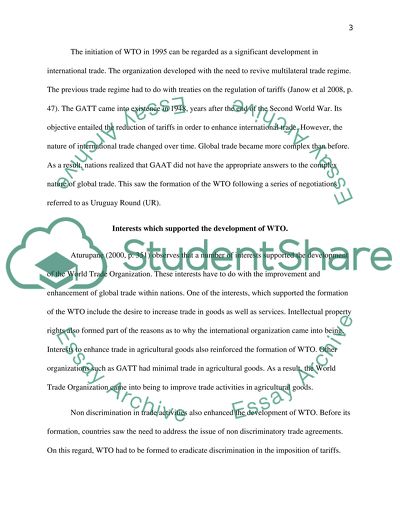Cite this document
(“World trade Organization Essay Example | Topics and Well Written Essays - 2250 words”, n.d.)
Retrieved from https://studentshare.org/history/1395887-world-trade-organization
Retrieved from https://studentshare.org/history/1395887-world-trade-organization
(World Trade Organization Essay Example | Topics and Well Written Essays - 2250 Words)
https://studentshare.org/history/1395887-world-trade-organization.
https://studentshare.org/history/1395887-world-trade-organization.
“World Trade Organization Essay Example | Topics and Well Written Essays - 2250 Words”, n.d. https://studentshare.org/history/1395887-world-trade-organization.


